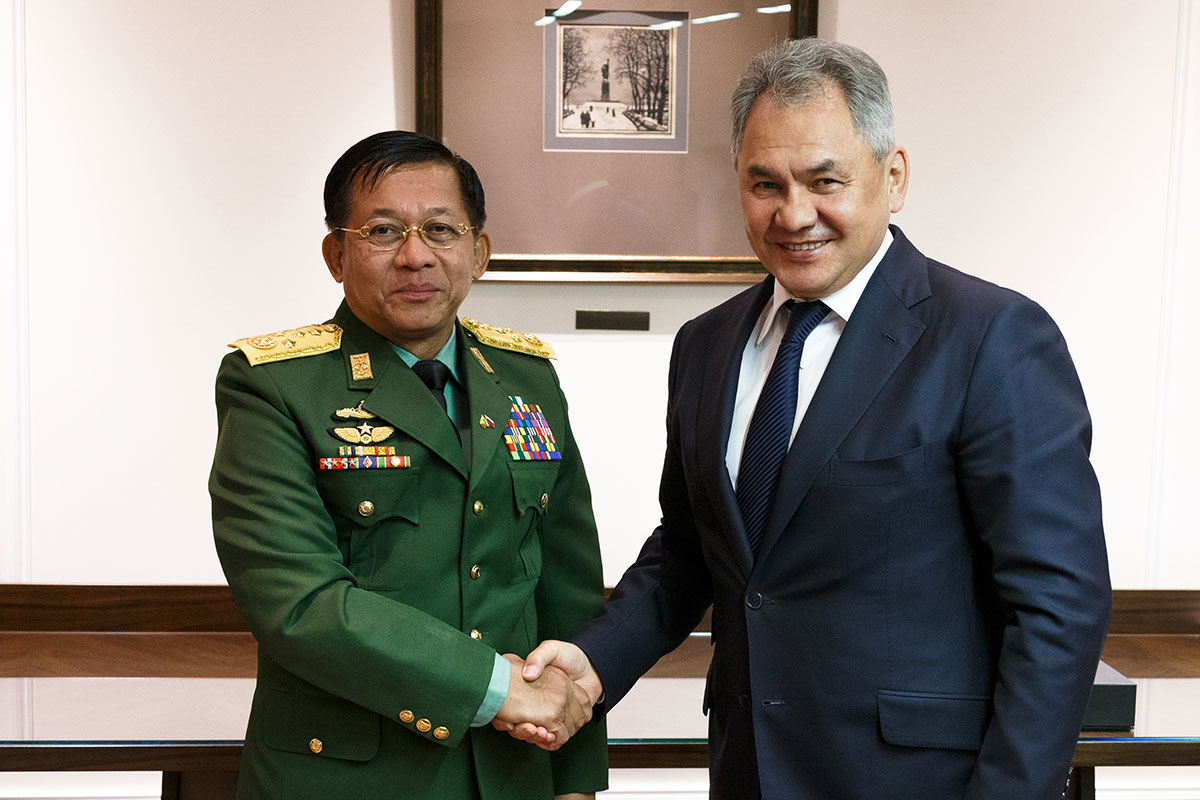BGA’s Myanmar team wrote an update to clients on the country’s evolving approach to the world following the February coup. The update addressed various aspects including changes in foreign relations, international economic policy and the implications for companies.
Context
Myanmar’s post-coup foreign relations dynamics have been in focus over the past few weeks, with China moving closer towards recognizing the current regime in place in the country and junta leader Senior Gen. Min Aung Hlaing paying a five-day visit to Russia.
This focus comes amid significant domestic challenges, including Covid-19 concerns as cases rise, shortages of currency and skirmishes across the country between the Myanmar military and the People’s Defense Force (PDF) — the armed wing of the opposition National Unity Government (NUG).
Significance
Recent developments suggest that a broader adjustment is at play internationally. Faced with increased diplomatic pressure from western countries and multilateral forums, the junta has ramped up economic engagement with China and Russia. It was no coincidence that the trip to Russia included visits to several large medical and pharmaceutical companies and included a reference to business matching events with Russian investors.
China’s role in the country is increasing as the junta seeks to consolidate power. In addition to the gradual recalibration of state-to-state engagement, according to Chinese customs data, the cumulative value of China’s imports from Myanmar for the first five months of 2021 stands at $3.4 billion, a 39 percent increase from its 2020 figures of $2.4 billion.
Implications
Censure and restrictions from certain institutions are expected to continue, beyond sanctions enacted by the United States and the European Union and the ongoing genocide case at the International Court of Justice. Recent cases include the June 19 United Nations General Assembly resolution urging nations to prevent arms flows into the country and a Norwegian pension fund that stated in June that it was divesting from Adani Port and Special Economic Zone Limited owing to Adani’s links to Myanmar’s military.
The junta’s moves raise doubts about whether it plans to transfer power. This includes the reestablishment of institutions that were in place before Myanmar’s 2011 democratic reforms and the personnel being put in place in key ministerial portfolios.
The BGA Myanmar team will continue to keep clients informed of ongoing developments. If you have any comments or questions, please contact BGA Myanmar Acting Managing Director Judy Ko at jko@bowergroupasia.com.

























